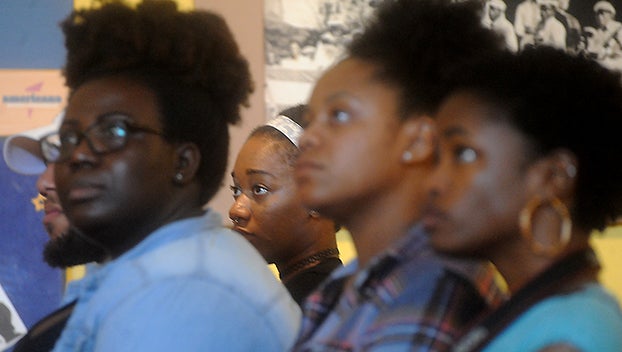University of Florida students document Natchez
Published 12:14 am Tuesday, June 20, 2017
NATCHEZ — For a group of Florida college students, history lessons are learned in the personal stories of everyday people as much as they are learned in the classroom.
For 10 years, students of the University of Florida’s Samuel Proctor Oral History Program have been conducting interviews and gathering research of the civil rights movement in Mississippi.
Since 2014, the students have stopped in Natchez as part of their tour of the state.
Program director Paul Ortiz said the trip gives students an opportunity to witness history first hand.
“One of our specialties is getting students outside of the classroom, learning history as it is being made,” Ortiz said. “We want to document history as it happens. We don’t want to wait 20 years (for it to be in a textbook).”
Ortiz said the program has traditionally conducted oral history interviews of people directly involved in the civil rights movement. In recent years, the program has shifted its focus slightly, he said.
“Over time, we have been interviewing more people who are maybe not from the civil rights era, but who (are) trying to preserve the history of that time period,” Ortiz said.
Natchez resident Jeremy Houston, who recently started a series of heritage tours in the Natchez, is one example, Ortiz said.
“There is a new kind of black history museum movement throughout the entire South,” he said.
Monday morning the students participated in a community service project by helping clean up part of the Watkins Street Cemetery. Monday afternoon they conduct oral history interviews and toured some of the city’s black history sites.
Krystal Dixon, one of the program’s students, said the trip provides a look at part of history that is overlooked.
“When I was in school, especially in history classes, I didn’t get to learn the stories of everyday people who experienced (the events we discussed in class),” Dixon said. “Even those personal stories affected big things. No one really talks about them in the mainstream.”
Oliver Telusma, who works as a research programmer for the oral history program, said the program offers a view of history from a rural perspective.
“A lot of stuff happened in the rural part of the country,” Telusma said.
Like Dixon, Telusma said much of the rural history is not taught in school.
Natchez Museum of African-American History and Culture Director Darrell White said the program provides the museum with printed transcripts of their interviews that are available to the public.
So far White estimates he has at least 15 or 20 transcripts that adds another dimension to the museum’s collection.
“We have had a previous relationship with the graduate students from California, and now we have an ongoing relationship with students from Florida,” White said. “For that I am happy.”







